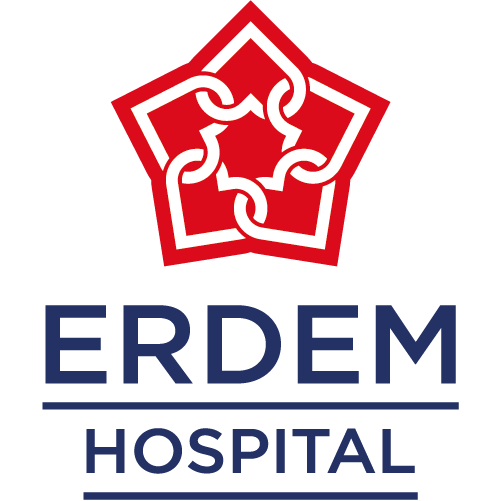The Department of Chest Diseases at Erdem Hospital specializes in diagnosing and treating a wide range of respiratory and pulmonary conditions. The department is equipped with advanced medical technologies and led by experienced specialists to provide high-quality patient care.
Diseases Treated
Patients receive specialized treatment for various lung and respiratory conditions, including but not limited to:
- Asthma and Allergies (including allergic rhinitis, allergic conjunctivitis, and allergic asthma)
- Chronic Obstructive Pulmonary Disease (COPD) and Emphysema
- Acute and Chronic Bronchitis
- Lung Cancer Screening and Evaluation
- Pneumonia and Other Inflammatory Lung Diseases
- Pulmonary Embolism (blood clots in the lungs)
- Pleuritis (Pleurisy)
- Pneumothorax (lung collapse, requiring surgical intervention)
- Urticaria and Angioedema (related allergic reactions)
Diagnostic and Treatment Services
Erdem Hospital provides cutting-edge diagnostic tools and therapies to ensure accurate and timely detection of lung diseases.
Diagnostic Methods Used:
- Pulmonary Function Tests (PFTs): Assess lung function and help diagnose COPD, asthma, and other respiratory disorders.
- Reversibility Function Tests: Determine the extent to which lung function improves with treatment.
- Allergy Skin Prick Tests: Identify common inhaled and food allergens.
- Total IgE and Specific IgE Blood Tests: Detect allergic reactions to specific allergens such as house dust mites, pollen, and food.
- Total Eosinophil Count: Evaluates allergic and inflammatory responses in the blood.
- Computed Lung Tomography (CT Scan): Provides high-resolution imaging of lung structures for precise diagnoses.
- Sputum Examinations: Analyze respiratory secretions for infections or abnormal cell growth.
Allergy Testing and Treatment
In response to the increasing prevalence of allergic diseases, the department offers comprehensive allergy testing and management. Diagnostic methods include:
- Skin Prick Tests: Identifies allergens that trigger respiratory or skin reactions.
- Skin Patch Tests: Determines allergic contact dermatitis causes.
- Specific IgE Tests: Measures the body’s immune response to various allergens.
Common Allergic Conditions Treated:
- Allergic rhinitis (hay fever)
- Allergic conjunctivitis (eye allergies)
- Allergic asthma
- Urticaria (hives) and angioedema
Advanced Treatment Approaches
Once diagnosed, the department tailors personalized treatment plans, including:
- Pharmacotherapy: Includes inhalers, corticosteroids, bronchodilators, and antihistamines.
- Immunotherapy (Allergy Shots): Helps desensitize patients to allergens over time.
- Lifestyle Modification Counseling: Educates patients on allergen avoidance and environmental control strategies.
- Respiratory Therapy and Pulmonary Rehabilitation: Beneficial for patients with chronic lung diseases to improve lung function.
- Minimally Invasive Procedures and Surgery: When necessary, procedures like bronchoscopy or lung surgery are performed.
Frequently Asked Questions (FAQs)
1. What are the symptoms of lung diseases that require a specialist consultation?
Patients experiencing persistent cough, shortness of breath, wheezing, chest tightness, recurrent infections, or unexplained fatigue should seek evaluation from a chest diseases specialist.
2. How are pulmonary function tests performed?
Pulmonary function tests (PFTs) involve breathing into a machine that measures lung capacity, airflow obstruction, and gas exchange efficiency. These tests help diagnose asthma, COPD, and other lung disorders.
3. What do high IgE levels indicate in allergy tests?
High IgE (Immunoglobulin E) levels indicate an allergic response to specific substances, such as pollen, dust mites, pet dander, or certain foods.
4. What is the difference between asthma and COPD?
- Asthma: Often triggered by allergens, reversible with medication, and occurs intermittently.
- COPD: A progressive disease, commonly caused by smoking or environmental pollutants, and is not fully reversible.
5. Can allergy tests detect food allergies?
Yes, specific IgE tests and skin prick tests can identify food allergies. However, additional tests like oral food challenges may be required for confirmation.
6. Is lung cancer screening necessary for everyone?
Lung cancer screening is recommended for high-risk individuals, such as long-term smokers, those with a family history of lung cancer, and individuals exposed to occupational hazards.
7. How is pulmonary embolism diagnosed?
A CT pulmonary angiography (CTPA) scan is the most effective method for detecting blood clots in the lungs. D-dimer blood tests and ultrasound scans of the legs may also be performed.
8. Can pneumonia be prevented?
Yes, pneumonia can often be prevented by:
- Getting vaccinated (pneumococcal and flu vaccines).
- Practicing good hygiene to reduce infection risks.
- Managing underlying chronic diseases effectively.
9. Are there any lifestyle recommendations for managing COPD and asthma?
- Avoid smoking and air pollutants.
- Use prescribed inhalers regularly.
- Maintain a balanced diet and exercise regimen to strengthen lung function.
- Attend pulmonary rehabilitation programs for specialized care.
10. Where can I get more information about allergy test pricing and procedures?
For details regarding allergy test costs and appointment scheduling, contact the Erdem Hospital Call Center at 0850 222 0 494.
Why Choose Erdem Hospital for Chest Diseases Treatment?
- Experienced Specialists: Our team consists of highly skilled pulmonologists, allergists, and respiratory therapists.
- Comprehensive Testing Facilities: From allergy tests to advanced lung imaging, all diagnostic procedures are performed in-house.
- State-of-the-Art Technology: Equipped with the latest medical devices for accurate and early diagnosis.
- Personalized Treatment Plans: Each patient receives a tailored approach to their condition for optimal recovery.
- Patient-Centered Care: We ensure a comfortable and supportive environment for all patients.
For expert consultation and treatment of lung and respiratory conditions, visit Erdem Hospital today or call 0850 222 0 494 for an appointment.
